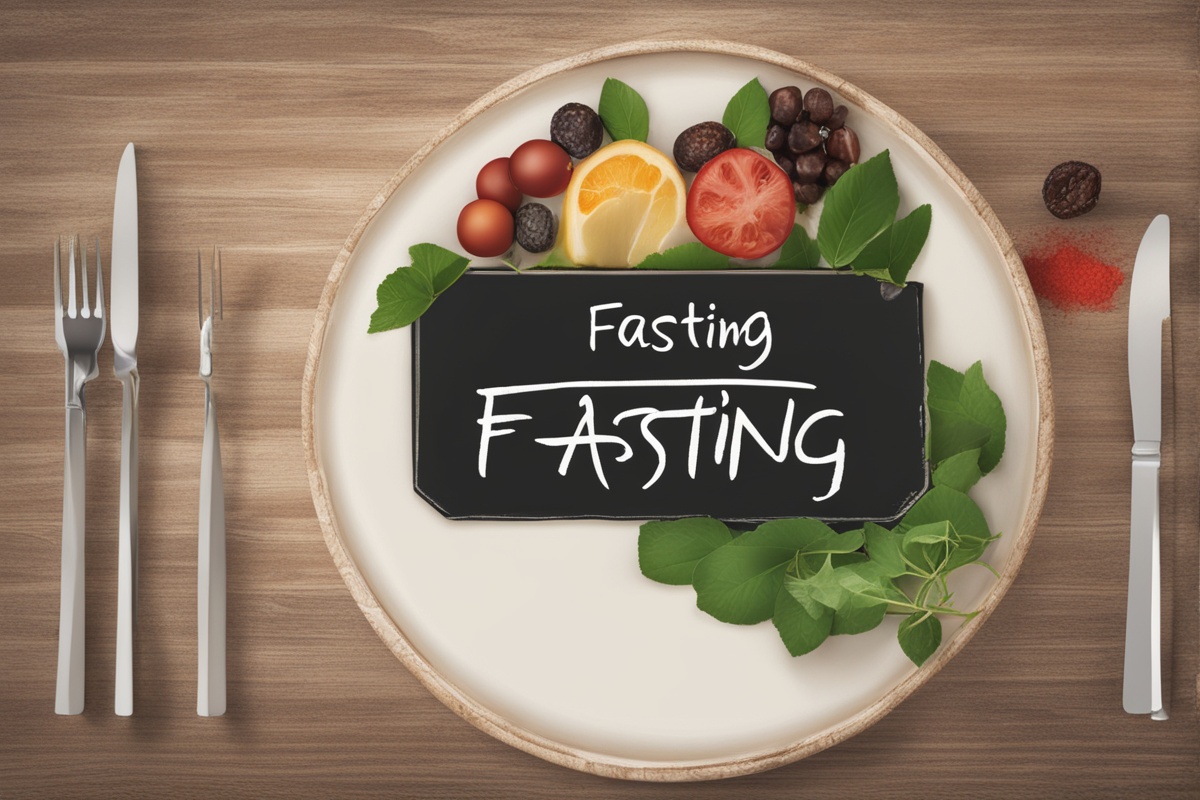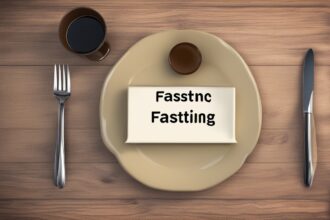Let’s talk about a topic that’s been buzzing in health circles for years now—intermittent fasting. Maybe you’ve heard friends raving about how it’s changed their energy levels, or perhaps you’ve scrolled past social media posts claiming it’s the secret to weight loss. But what’s the real deal with intermittent fasting, and why should you care about understanding intermittent fasting benefits? Stick with me as I break it down in a way that’s easy to digest (pun intended!), with insights grounded in research and a sprinkle of personal experience to keep things relatable.
Disclaimer: This article is for informational purposes only, based on general research and experience—it’s not a substitute for professional medical advice, diagnosis, or treatment. Always consult a qualified healthcare provider for personalized guidance before making any significant changes to your diet or lifestyle, especially if you have pre-existing health conditions or concerns. I’m here to share what I’ve learned and point you toward credible resources, but your health decisions should always involve a trusted expert who knows your unique situation.
What Exactly Is Intermittent Fasting?
At its core, intermittent fasting (IF) isn’t about what you eat—it’s about when you eat. Unlike traditional diets that focus on cutting calories or banning certain foods, IF is a pattern of eating that alternates between periods of fasting and eating. Think of it as giving your body a break from constant digestion. Common methods include the 16/8 approach (fast for 16 hours, eat during an 8-hour window) or the 5:2 plan (eat normally for five days, restrict calories on two non-consecutive days). It’s less of a diet and more of a lifestyle tweak.
Now, why would anyone willingly skip meals? That’s the million-dollar question. For many, including myself, it started as curiosity. A few years back, I found myself sluggish after big lunches, so I experimented with a 16/8 schedule. The first few days were rough—hunger pangs are no joke—but soon, I noticed my focus sharpening. That personal shift got me hooked on researching the science behind it, which leads us to the heart of this post: understanding intermittent fasting benefits.
The Science Behind Intermittent Fasting Benefits
Diving into the benefits of IF feels like peeling back layers of a complex onion. At a cellular level, fasting triggers a process called autophagy, where your body cleans out damaged cells and regenerates new ones. Imagine your body as a house—fasting is like hiring a cleaning crew to sweep out the junk. Studies, like those published in the New England Journal of Medicine, suggest this process may play a role in longevity and disease prevention. Pretty cool, right?
But let’s get practical. One of the most well-documented perks is improved metabolic health. When you fast, insulin levels drop, which helps your body access stored fat for energy. Research from the National Institute on Aging shows this can enhance insulin sensitivity, potentially lowering the risk of type 2 diabetes. I’ve seen this firsthand with a close friend who struggled with blood sugar spikes. After adopting a 16/8 fasting routine under medical supervision, they reported fewer crashes and more stable energy. Of course, results vary, and it’s not a one-size-fits-all fix—more on that later.
Weight Management: A Key Benefit Worth Exploring
Let’s be real—weight loss is often the first thing people associate with intermittent fasting, and for good reason. By narrowing your eating window, you’re likely to consume fewer calories without even trying. A 2020 review in Obesity Reviews found that IF can lead to significant weight loss, especially when paired with mindful eating. But here’s the kicker: it’s not just about eating less. Fasting may also boost fat-burning hormones like norepinephrine.
Picture this: You’re someone who’s always snacking late at night (guilty as charged, by the way). Switching to an eating window that ends at 7 PM forces you to rethink those mindless munchies. During my own IF journey, I dropped a few stubborn pounds without counting calories—something I’d failed at with other diets. Still, I’ll be upfront: IF isn’t a magic bullet. If you’re binging on junk during your eating window, don’t expect miracles. It’s a tool, not a cure-all.
For more on balancing nutrition with fasting, check out our guide on Healthy Eating Tips During Fasting.
Mental Clarity and Energy: The Unexpected Perks
Here’s where things get personal. One of the most surprising benefits I discovered while understanding intermittent fasting benefits was the mental boost. Fasting can increase levels of brain-derived neurotrophic factor (BDNF), a protein linked to brain health, according to research from Johns Hopkins University. Higher BDNF might mean better focus, memory, and even mood. Ever felt that mid-afternoon brain fog? After a few weeks of IF, I found myself powering through tasks without reaching for a third coffee.
That said, the adjustment period can be a bear. The first time I fasted, I was irritable and couldn’t string two thoughts together. It took patience—and a lot of water—to push through. If you’re curious about how fasting impacts mental health long-term, our post on Fasting and Mental Wellness dives deeper into the topic.
Potential Health Risks and Downsides to Consider
I’d be doing you a disservice if I didn’t address the flip side. While understanding intermittent fasting benefits is exciting, it’s not for everyone. Some folks experience headaches, fatigue, or intense hunger, especially in the beginning. For others, like those with eating disorders or certain medical conditions, fasting can be downright dangerous. A 2019 study in the Journal of Clinical Medicine warns that improper fasting may lead to nutrient deficiencies or exacerbate underlying issues.
Take my cousin, for example. She jumped into IF without prep and ended up feeling dizzy and depleted. After consulting her doctor, she realized her low iron levels made fasting a poor fit. The lesson? Listen to your body and seek professional advice. If you’re pregnant, breastfeeding, or managing chronic illness, tread carefully. For a broader look at who should avoid fasting, see our article on Fasting Safety Tips.
How to Start Intermittent Fasting the Right Way
Convinced to give IF a shot? Don’t dive in headfirst—ease into it. Start with a gentle 12/12 schedule (12 hours fasting, 12 hours eating) before progressing to 16/8. Hydration is your best friend during fasting windows—think water, herbal tea, or black coffee (no sugar, sorry!). Also, prioritize nutrient-dense meals when you do eat. I learned the hard way that scarfing down pizza after a fast left me feeling worse than before.
Here’s a quick tip: Plan your eating window around your lifestyle. If you’re a night owl, maybe eat from 2 PM to 10 PM. If mornings are your jam, shift earlier. Track how you feel—journaling helped me notice patterns in energy and hunger. And remember, consistency beats perfection. Slip-ups happen; don’t beat yourself up.
Long-Term Sustainability: Is IF Right for You?
Here’s the thing about intermittent fasting—it’s not a quick fix or a trend to hop on for a month. Understanding intermittent fasting benefits means recognizing it as a potential long-term habit. Some people, like myself, find it liberating to skip breakfast without guilt. Others feel restricted and miserable. There’s no shame in either camp. A balanced perspective is key: IF can be transformative if it fits your life, but it’s not the only path to health.
Chat with folks who’ve tried it. Join online communities or ask friends for their two cents. And most importantly, reassess regularly. What works at 25 might not at 35. Your body evolves, and so should your approach. If you’re looking for alternative strategies, consider exploring other wellness practices alongside IF—meditation or mindful eating can complement it beautifully.
References
- de Cabo, R., & Mattson, M. P. (2019). Effects of Intermittent Fasting on Health, Aging, and Disease. New England Journal of Medicine.
- National Institute on Aging. (2020). Research on Intermittent Fasting Shows Health Benefits.
- Welton, S., et al. (2020). Intermittent Fasting and Weight Loss: Systematic Review. Obesity Reviews.
- Albosta, M., & Bakke, J. (2019). Intermittent Fasting: Is There a Role in the Treatment of Diabetes? Journal of Clinical Medicine.
This content is for informational purposes only and not a substitute for professional advice.






